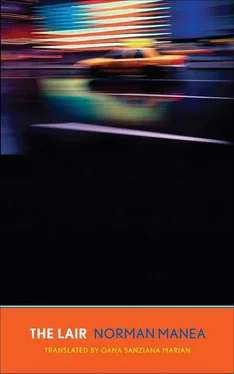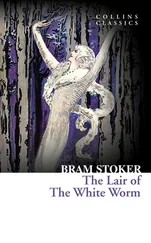Today and yesterday, blood pressure 190 over 95. “We’re numbers, my man. Listen to the Soviet, we’re numbers, that’s all. Capitalists don’t know anything outside of numbers. Doctors, lawyers, garbage men, senators, policemen. All of them. Anyone, everyone. All they do is count numbers!”
Gora had called the Australian.
“Yes, I remember your name,” the receptionist answered sleepily. Dr. Hostal is attending a cardiology conference in Michigan. He will be back in the afternoon. He’s already on the plane. When he arrives, I will tell him you called. High blood pressure and strange, sharp pains in your chest, that’s the message, I understand. You don’t know if it’s heartburn or actually heart pains. Shooting pain, weakness, high blood pressure. Panic? Yes, bouts of panic, I’ve noted. I will relay the message, you can rest assured.”
Hostal called him in the late afternoon.
“Okay, please come first thing, the day after tomorrow. We’ll perform the second angioplasty. Tomorrow you’ll go to have blood drawn. They will prepare the paperwork for your admittance, and we’ll operate the day after tomorrow.”
Gora swallowed an aspirin and a sedative.
“Of course, there are risks. There are always risks. I told you the first time, as well. Heart failure, stroke. All possible. It happens rarely. We’re working with statistics, the risks exist, but they are not great.”
Statistics, of course. The Soviet man would grow very fond of that word. Even Hostal didn’t ignore the arithmetic of globalization. Capitalism with a human mask had conquered socialism with a human mask. “He will explode as well, he will explode, we will all explode,” sang the group Herostratus.
The shadow was widening in his chest. The spider advanced toward the left shoulder and arm, the thorax swelled and waned with the moaning. A low boil, torpor. Breathing down to a pant. A heavy, granite nape. Professor Gora has no one to leave behind, to whom will he leave his memories, his obituaries. He never managed to finish Peter’s obituary, and now Izy and Bar — El and the Australian Dr. Hostal were disputing their positions.
The Gora folder was chock full of images of arteries before and after the rejuvenation, the images of the heart, cardiograms, blood and urine and saliva and dandruff tests, tests of stress and endurance, prescriptions and warnings. A technical Obituary, without words, just numbers, appropriate to the new century. Devoid of memory or metaphor. The stents won’t rot in the ground where the bones and heart and memories will rot, said the Obituary.
“You’re fixed! You’re young, good as new. You can do anything you want, eat quite anything you want,” said the god in the white lab coat. “The stents are ultradurable. A rare metal, deathless. They will survive in the ground, long after nothing else has survived.”
Gora had dozed off, repeating Mephistopheles’ message to himself. He was smiling. The devil was a clown who was reversing his age, without asking for his soul in return. Just proof of medical insurance. Not the soul, Comrade Boltanski, just the account number of my medical insurance. A number, yes, that’s all, not the soul. Proof of insurance. Blue Cross, Blue Shield, Medicare, Atlantic, AARP.
Professor Gora was smiling, in spite of his exhaustion, his extreme exhaustion and drowsiness. The panic had depleted him.
He awoke looking out the window at the woods. The setting sun, the day being swept away. His head on the table. His exhaustion widening. A body made of wax. A timorous whizzing sound at first, then more insistent, like a cricket. The phone. He’d set the volume of his phone to minimum, he couldn’t stand alarms. He extended his hand. The receiver so heavy, he could barely lift it.
He didn’t recognize my voice, he was delirious.
“Yes, I am sleepy. A rough day, yes, and a rough night to follow tomorrow. The second angioplasty. The locust will gorge itself on the waste lining my arteries. And I will be able to watch it all on the little screen. The new millennium’s photo — moto — loto, on the little screen.”
Gora had paused.
“I’m raving, like Ga  par. I keep looking for him, in vain, inside myself and outside myself. Now, since this illness took me out from where I was among my books and hurled me into chaos, I speak just like him. Isn’t that true that I’m speaking like him?”
par. I keep looking for him, in vain, inside myself and outside myself. Now, since this illness took me out from where I was among my books and hurled me into chaos, I speak just like him. Isn’t that true that I’m speaking like him?”
I didn’t think so, or, who knows, at the very least, it was a simple imitation.
“Yes, where were we? Of course, there are risks. Rare risks, the statistics say. That is, the doctors say that the statistics say that the risks are rare. You’re right. We should believe them, we have no choice but to believe them.”
He was listening attentively to my good wishes, as if they were important pieces of news.
“Thank you, thank you. I should have called you more often, as well, we should have spoken more often. After the surgery. Call me after the surgery. Yes, yes, I’ve made mistakes, too, and not just one or two. I don’t know if she’s happy. No, I don’t know, I’m not Saint Augustin.”
After hanging up, I’d wager that Gora was probably muttering to himself, “People are essentially good, people are good.” The world is good, also in dreams produced by illness and medication, but if you happen to encounter dreams and books, then you should neither scorn nor abandon the world.
The telephone message had made him happy. The speaker seemed a man of goodwill who wanted to wish the patient a speedy recovery. A well — wisher, he deserved a good obituary.
Gora smiled, a shadow had passed, an infantile and villainous shadow across his tired face.
The taxi driver was no longer Boltanski, but a student from Senegal, in love with America and the vacations in his native country; the nurse was no longer the beautiful Polish woman, but an Indian auntie with glasses. Dr. Hostal was the same. Solid, taciturn, trustworthy.
He’d appeared in the great operating room before and after the surgery, escorted by two young residents, taller than he is by a head. He’d been by three of the eight beds segregated with the floral curtains that rolled along the frames attached to the ceiling.
“Today you are no longer the first one, you’re the second. We’re performing more stent procedures than last time. It will take longer. Otherwise, the procedure is the same.”
The patient was silent, naked under the blue crepe paper tunic. The democratizing effect of his nudity restored his childishness.
“You already know the procedure. The little imaging camera enters through a central artery, passes toward the area of the heart, returning images. The catheter will expand in the blocked area, then the cleaning, the application of the casing.”
Improvements! Plumbing! Thirty daily procedures in this hospital, eight hundred per month, across America. Like auto maintenance.
Hostal was looking at the patient.
“We’re using Taxus Express Two. A precious metal with a protective antibuildup sheathing. Paclitaxel-Eluting Coronary System. Let’s trust it.”
The bed on wheels. The elevator, eighteenth floor, room nine, the door wide open. The nurse is Korean. The glass with the pink liquor. The restraining of his hands and legs. The resident, the professor, the computer. Start.
Now the screen was behind him, the patient could no longer see the insect nibbling away at the waste along the artery. He could see the nurse, the doctor, the resident. Sharply, the needle prick. On the left, in the cavity of his chest, toward the left. Again and again. A fine tentacle, deep needles. Pain. Burning. Thin, elongated. The oxygen balloon dilates the walls of the artery. The insertion of the cylinder. The patient closes his eyes, trying to separate mind from body.
Читать дальше

 par. I keep looking for him, in vain, inside myself and outside myself. Now, since this illness took me out from where I was among my books and hurled me into chaos, I speak just like him. Isn’t that true that I’m speaking like him?”
par. I keep looking for him, in vain, inside myself and outside myself. Now, since this illness took me out from where I was among my books and hurled me into chaos, I speak just like him. Isn’t that true that I’m speaking like him?”










